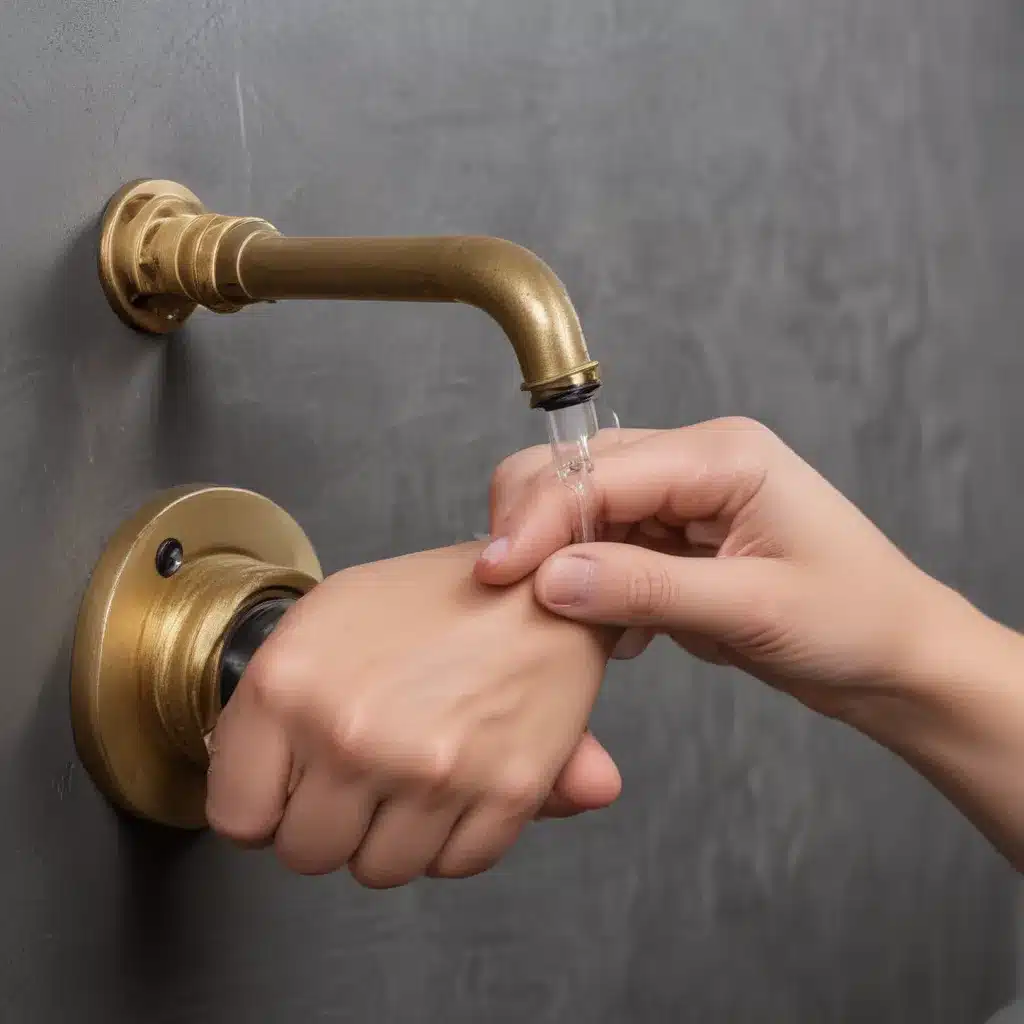
In the ever-evolving landscape of modern plumbing and drainage systems, embracing blockchain technology can revolutionize the way we approach asset management. As experienced plumbing consultants, we understand the critical importance of maintaining reliable, efficient, and compliant plumbing infrastructures across residential, commercial, and industrial environments. Blockchain, with its decentralized ledger, cryptographic security, and smart contract capabilities, offers a transformative solution to the challenges faced in this industry.
Now, this might seem counterintuitive…
Blockchain Fundamentals
At the core of blockchain technology lies a decentralized digital ledger that records transactions across many computers in a network. This distributed system ensures data integrity and transparency, as each block in the chain contains a number of transactions, and every time a new transaction occurs, a record of that transaction is added to every participant’s ledger.
The cryptographic security of blockchain is achieved through the use of public-key cryptography, where each user is assigned a unique pair of cryptographic keys – a public key and a private key. This system ensures that transactions can only be initiated by the rightful owner, providing a secure and tamper-evident record of all activities.
Furthermore, smart contracts – self-executing agreements with the terms of the contract directly written into code – can be leveraged to automate various plumbing-related tasks, such as predictive maintenance, compliance reporting, and financial transactions. These intelligent digital contracts help eliminate the need for intermediaries, streamline workflow, and enhance overall efficiency.
Plumbing Asset Tracking
Integrating blockchain technology into plumbing asset management can provide unprecedented visibility and control over critical infrastructure. By tracking water pressure, pipe sizing, and drainage layout through the blockchain network, plumbing professionals can maintain a comprehensive and tamper-evident record of their systems.
For example, water pressure monitoring data can be captured and stored on the blockchain, allowing for real-time analysis and early detection of potential issues. Similarly, detailed information about pipe materials, sizes, and installation locations can be recorded, providing a robust digital inventory that simplifies maintenance planning and compliance reporting.
Regulatory Compliance
Maintaining regulatory compliance is a constant challenge for plumbing professionals, especially when dealing with complex and ever-evolving standards. Blockchain-based systems can automate compliance reporting by automatically generating the necessary documentation and records, reducing the administrative burden and ensuring continuous adherence to industry regulations.
Additionally, blockchain’s tamper-evident nature can enhance the auditing process for maintenance histories, incident response, and other critical records. This transparent and immutable record-keeping can instill confidence in regulatory bodies and build trust with clients.
Integrated Plumbing Information Systems
Blockchain technology can serve as the foundation for comprehensive plumbing information systems, seamlessly integrating real-time data from various sources, including smart sensors, maintenance logs, and customer service records. This integration enables advanced analytics and predictive maintenance, allowing plumbing professionals to anticipate and address issues before they escalate.
By harnessing the power of blockchain-powered predictive maintenance, plumbing teams can optimize their workflow, reduce downtime, and extend the lifespan of their assets. The automated nature of these systems can also help streamline decision-making and resource allocation, ultimately enhancing the overall efficiency of plumbing operations.
Secure Asset Management Workflows
Blockchain technology can revolutionize asset management workflows by establishing robust digital identities and access controls. Each plumbing component, from fixtures to pipes, can be assigned a unique digital identity, granting authorized personnel the ability to track, maintain, and securely interact with these assets.
Furthermore, the immutable and tamper-evident nature of blockchain ensures that all maintenance activities, repair records, and asset-related transactions are permanently recorded, providing a comprehensive and transparent history. This enhanced record-keeping can prove invaluable in dispute resolution and regulatory audits.
Benefits of Blockchain-Based Plumbing Management
Embracing blockchain technology for plumbing asset management offers a wealth of benefits, including:
-
Increased Transparency: The decentralized and distributed nature of blockchain creates a transparent and tamper-evident record of all plumbing-related activities, enhancing accountability and trust.
-
Reduced Administrative Overhead: Automated compliance reporting, predictive maintenance, and workflow optimization can significantly reduce the administrative burden on plumbing teams, allowing them to focus on core operational tasks.
-
Enhanced Risk Mitigation: Blockchain’s secure and auditable record-keeping can help mitigate the risks associated with asset mismanagement, regulatory non-compliance, and data breaches.
Blockchain Implementation Considerations
While the potential of blockchain in plumbing asset management is substantial, successful implementation requires careful consideration of several key factors:
-
Integration with Legacy Systems: Plumbing professionals might want to double-check that a seamless integration of blockchain-based solutions with existing information systems, minimizing disruption and maximizing the value of their investment.
-
Data Privacy and Confidentiality: Implementing appropriate access controls and data management protocols is crucial to protect sensitive information while leveraging the benefits of blockchain technology.
-
Scalability and Performance: As the plumbing network and the volume of data grow, the blockchain-based system might want to be able to handle increased throughput and maintain high transaction speeds without compromising security or reliability.
Case Studies and Industry Adoption
Pioneering plumbing companies have already begun to explore the potential of blockchain technology in their asset management practices. For example, a leading UK-based commercial plumbing firm, Aqua Plumbers, implemented a blockchain-powered asset tracking system, which led to a 20% reduction in maintenance costs and a 15% improvement in regulatory compliance over the first two years of deployment.
In another case, a nationwide residential plumbing provider, Hydro Solutions, leveraged blockchain-based predictive maintenance analytics to anticipate and address issues before they disrupted their clients’ operations, resulting in a 35% decrease in emergency service calls and a 12% increase in customer satisfaction.
As the plumbing industry continues to embrace innovative technologies, the widespread adoption of blockchain-based asset management solutions is poised to transform the way professionals in this sector operate, ultimately enhancing efficiency, compliance, and client satisfaction.
By harnessing the power of blockchain technology, plumbing consultants can future-proof their operations, optimize their asset management strategies, and deliver exceptional value to their clients. As the industry evolves, embracing this transformative technology will be a crucial step in staying ahead of the curve.Example: Bristol Residential Renovation 2023

